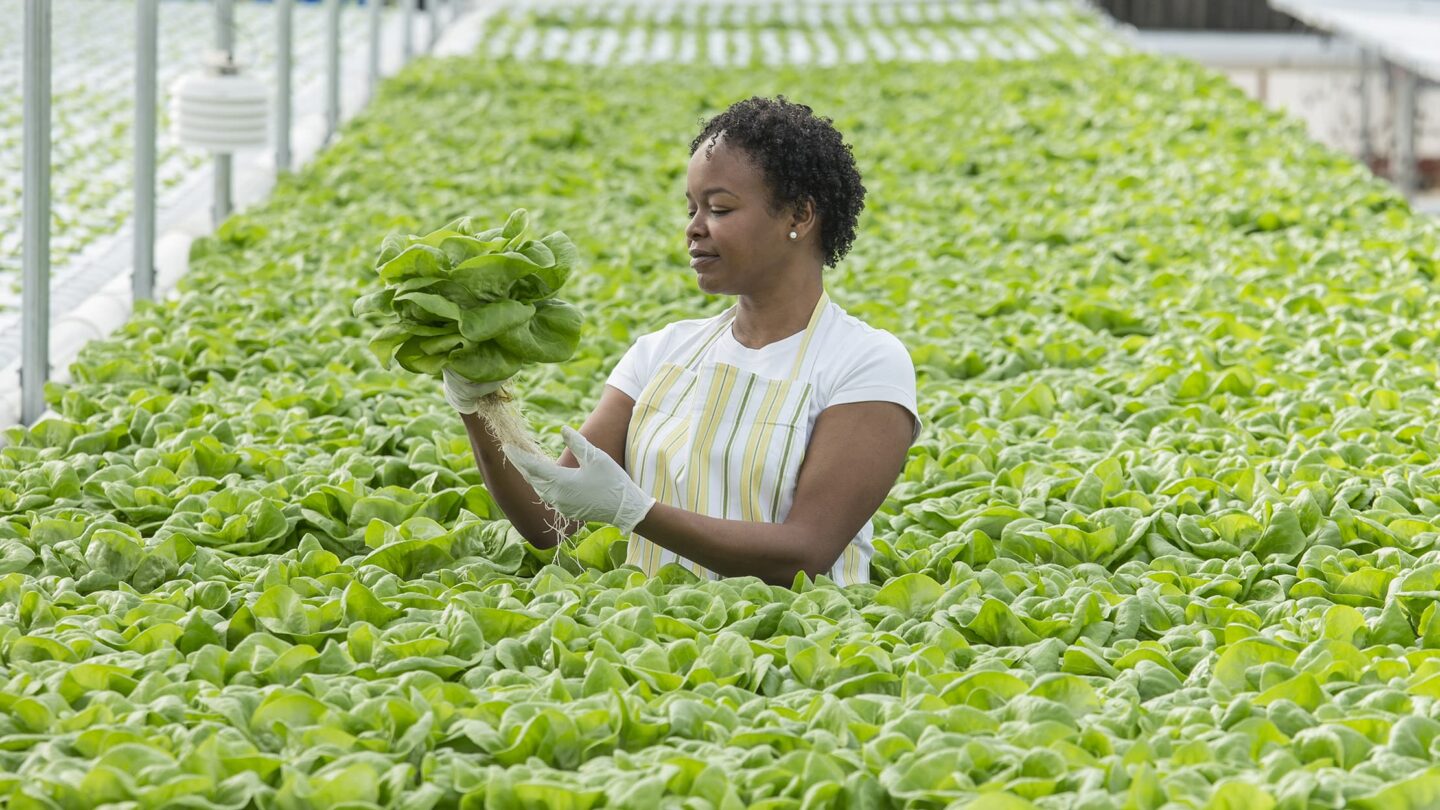Research
To effectively tackle the climate crisis, SMEs need more support from government and big business [research]
Although most SMBs believe that sustainability is important, many face challenges in understanding and reducing their environmental impact, research finds.

Over three-quarters, (76%) of small and medium-sized businesses (SMEs) in South Africa believe that sustainability is important, but many face challenges in understanding and reducing their climate impact.
This was one of the key findings of the SME Climate Impact Report, which interviewed over 2,000 South African SMEs (as well as 2,000 SMEs in the UK) to get a deeper understanding of how they view sustainability and the measures they’re taking to become more sustainable.
The SME Climate Impact Report, commissioned by Sage in partnership with Oxford Economics and the International Chamber of Commerce (ICC), was released at the 27th Conference of the Parties of the UNFCCC (COP27) It is a call to action for government and policymakers to help South African SMEs become more sustainable, given the influential role they play in the economy.
The SME Climate Impact study models the climate impact of SMEs using the Oxford Economics Global Sustainability Model.
A little becomes a lot
In South Africa, SMEs directly contribute R2.1 trillion, or 40%, of the National Gross Domestic Product (GDP) and account for 6.2 million direct jobs or 46% of direct employment. The economic footprint generated through their indirect supply chain and induced consumer spending contributions amounts to R4 trillion in GDP value; their total employment footprint in South Africa is over 10.2 million people. This means South African SMEs’ total economic footprint totalled just over three-quarters of gross-value added and employment.
The study confirms the crucial role that SMEs play in the country’s economy and that, collectively, they have a significant climate impact and an instrumental role to play in reaching the government’s target of net zero by 2050.
The report shows that South African SMEs’ Scope 1 greenhouse gas (GHG) emissions—those created from sources they own or control—were an estimated 61 million tonnes of CO2e in 2021— which is 14% of South Africa’s total Scope 1 non-household emissions. SMEs’ footprint totalled 29% of non-household emissions in South Africa when GHGs generated in their supply chains is considered.
But the research highlighted that SMEs need a lot more support from governments and big businesses to become more sustainable.
Strong sense of purpose among South African SMEs
SMEs in South Africa understand the urgency of the climate crisis, want to become more sustainable, and are eager to play their part in addressing climate impact.
According to the survey, 66% of SMEs have, or plan to, develop policies related to their environmental, social, or sustainability impact. In fact, 26% rate sustainability as a top priority, and 16% say it’s central to what they do.
Good intentions
Although they know it’s the right thing to do—and they want to do the right thing—90% of SMEs face barriers to reducing their impact.
When it comes to moving the needle on climate action, 61% of SMEs say managing their climate impact has become harder in the past six months.
They highlight several challenges, including:
- Too little cash to make the necessary investments,
- Not knowing how to track their impact,
- Government policies that restrict their ability to innovate,
- Difficulties finding the right solution to understand and improve their impact, and
- Inflation and rising energy bills.
Despite these challenges, SMEs are doing what they can to improve their sustainability.
Uptake for “low-hanging fruit” items is high and includes:
- Reducing the amount of waste produced (45%),
- Buying more reused or recycled products (43%),
- Reducing energy use (42%),
- Digitising operations to use fewer resources (41%), and
- Reducing business travel (40%).
However, they find it difficult to implement measures that could have a real impact on their sustainability.
Many SMEs say they have tried—but failed—to:
- Monitor and report on their climate impact (41%),
- Switch to cleaner or renewable energy (41%),
- Encourage their suppliers to become more sustainable (39%),
- Switch to low-carbon transport (38%), and
- Change their products and services to be more sustainable (36%).
Reducing the climate impact of SMEs is crucial to achieving the transition to a sustainable, low-carbon economy, but there is a gap between their belief that sustainability is important and their ability to take action.
Our research found that SMEs want and need support from three critical sources: technology, government, and big business.
Digitalisation and sustainability: The twin transition
The research identified technology and digitalisation as the leading way to becoming more sustainable for SMEs—i.e., a “twin transition”.
However, an absence of data and monitoring systems makes it difficult for them to benchmark their environmental performance, set meaningful targets, and measure improvements.
And although SMEs recognise the role of digitalisation in understanding and addressing their climate impact, they don’t have access to the necessary data to do this, and they are not sure how to integrate sustainability into their business models.
One reason for this is that there is a lack of solutions and reporting frameworks tailored to the needs of SMEs. And where there is tech available, it is cost prohibitive and more suited to big businesses.
If they had access to such solutions, SMEs believe that technology could help them to:
- Track their energy consumption and emissions across the business (38%),
- Understand how to reduce emissions from their use of technology (34%),
- Better manage their waste and recycling processes (27%),
- Measure and report on their impact to their suppliers (22%), and
- Source more sustainable supplies (20%).
However, limited resources, difficulty accessing finance, and a lack of knowledge on measuring their impact make it difficult for SMEs to develop and adopt sustainability solutions.
This is where the government and big businesses can step in and enable SMEs to take climate action.
Big business as big brother
Many large businesses source products and services from small businesses (and vice versa) and, as such, might have data about these businesses’ climate impact.
Our research found that giving SMEs access to this data is one of the biggest roles that big businesses can play in helping them—and their supply chains—to become more sustainable.
Large enterprises have the budget, resources, and experience to manage their climate impact, which means they also have valuable information, advice, and support for SMEs.
We identified the following ways that big business can help:
- Offer advice on how SMEs can offset their emissions (34%),
- Allow access to data about their impact (34%),
- Provide guidance on how to measure and report on their impact (32%),
- Suggest ways that SMEs can use their products in a more sustainable manner (26%),
- Share how they are becoming more sustainable, i.e., set an example (23%), and
- Help with buying and using technology effectively to reduce SMEs’ impact (24%).
SMEs say they don’t know how to measure their emissions and want training and education to understand what actions they can take to reduce their impact.
Big businesses can step into this advisory role and help to close the knowledge and information gap to help SMEs understand their impact, identify opportunities to reduce it and make sense of environmental legislation.
Role of government
To date, policies that aim to reduce businesses’ impact on the climate have mainly targeted large enterprises. There is a lack of policy, reporting frameworks, and environmental standards tailored to the small business community.
What’s more, small businesses’ ability to act is further constrained by difficulty getting financing for strategic sustainability initiatives, like adopting data and monitoring systems or switching to green production technology.
Our research identified several ways that governments can create a comprehensive plan that empowers SMEs to reduce greenhouse gas emissions and support the country’s overall plan towards net zero.
Specific policy recommendations include:
- Tailor all existing and future environmental standards and reporting requirements to SMEs so they are not overly complex or costly
- Equip SMEs with adequate data, technology, and training to ensure they can easily measure and reduce their environmental footprint
- Provide a comprehensive suite of fiscal interventions, including tax credits that can support SMEs to take more ambitious climate action and invest in net zero emissions technologies
Last word
The world faces huge challenges associated with climate change, and SMEs have a critical part to play in addressing the crisis.
It is clear from the research that SMEs are keen to reduce their impact. But their ability to do so is hampered by difficulties with measuring impact, funding constraints, and a lack of suitable technology.
Only through enabling policy and incentives, sharing of information and best practice, and broader use of supporting technology will we see real change.
SMEs need practical and policy support to contribute to a more sustainable future. We need to all come together because we’re all in this together.
The Climate Impact of SMEs Report
This report provides an overview of SMEs' economic and climate impact in the UK and South Africa. Learn how SMEs view sustainability and the measures they are taking or would like to take to become more sustainable.








Ask the author a question or share your advice